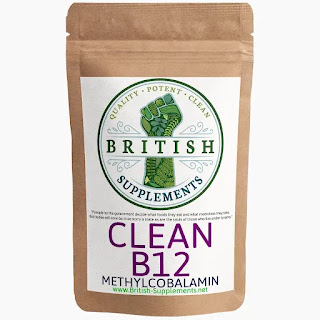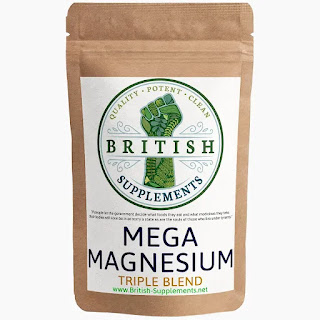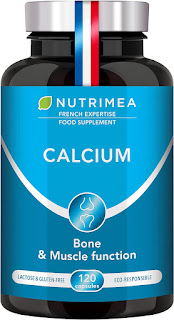How to Stop the Ringing in Your Ears with These 5 Natural Supplements.
Tinnitus is not a disease itself, but a symptom of an underlying problem. There are many possible causes of tinnitus, such as noise exposure, hearing loss, ear infections, medications, stress, and more. Sometimes, the cause of tinnitus is unknown.
There is no cure for tinnitus, but there are some treatments that can help you manage the symptoms and reduce the impact of the condition. One of the possible treatments for tinnitus is taking supplements. Supplements are substances that provide extra nutrients or benefits to your body. Some supplements may have a positive effect on your ear health and tinnitus by improving blood circulation, reducing inflammation, protecting nerve cells, or enhancing brain function.
However, not all supplements are safe or effective for tinnitus, and some may even worsen the condition or cause side effects. Therefore, you should always consult your doctor before taking any supplement for tinnitus, especially if you have any medical condition or take any medication that may interact with the supplement.
In this blog post, we will review five supplements that may help you stop the ringing in your ears or at least improve your symptoms. These supplements are magnesium, calcium, zinc, vitamin B12, and gingko biloba. We will explain how they work, how much to take, and what to watch out for.Magnesium.
Magnesium is a mineral that is involved in many processes in your body, such as nerve signaling, muscle contraction, blood pressure regulation, and bone health. Magnesium also plays a role in hearing and ear health by regulating the production of glutamate, a neurotransmitter that is essential for hearing but can also cause damage to the inner ear cells if it accumulates excessively.
Magnesium may help you stop the ringing in your ears by preventing or reducing the glutamate-induced damage to the inner ear cells,which can cause tinnitus and hearing loss.
Magnesium may also protect your ears from noise-induced hearing loss by improving blood flow and reducing inflammation in the inner ear.
The recommended daily intake of magnesium for adults is 420 mg for men and 320 mg for women. However,many people do not get enough magnesium from their diet,and some factors such as stress,alcohol consumption,or diuretics can deplete your magnesium levels.
You can increase your magnesium intake by eating foods rich in magnesium such as green leafy vegetables,nuts,seeds,beans,whole grains,dairy products,
and dark chocolate.
You can also take magnesium supplements in the form of capsules or tablets.
The most common forms of magnesium supplements are magnesium citrate,
magnesium glycinate,and magnesium threonate.However, you should be careful not to take too much magnesium as it can cause side effects such as diarrhea,nausea,cramps,
or irregular heartbeat.
You should also avoid taking magnesium if you have kidney problems or heart blockage.
You should also check with your doctor if you take any medication that may affect your magnesium levels or interact with the supplement.
Calcium.
Calcium is another mineral that is important for your body functions such as bone health,muscle contraction,blood clotting,and nerve transmission.
Calcium also helps maintain the balance of fluids and electrolytes in your inner ear,
which is essential for proper hearing function.
Calcium may help you stop the ringing in your ears by restoring the fluid balance in your inner ear, which can be disrupted by factors such as aging,infection,trauma,ormedication.
Calcium may also prevent or treat otosclerosis,a condition that causes abnormal bone growth in the middle ear, which can lead to hearing loss and tinnitus.
The recommended daily intake of calcium for adults is 1000 mg for men and women aged 19-50, and 1200 mg for men and women aged 51 and older.
You can get calcium from foods such as dairy products,green leafy vegetables,fish with bones,tofu,almonds,and fortified cereals.
You can also take calcium supplements in the form of tablets or chewables.
The most common forms of calcium supplements are calcium carbonate and calcium citrate.
Zinc.
Zinc is a trace element that is essential for your immune system,wound healing cell growth,and metabolism.
Zinc also plays a role in hearing and ear health by modulating the activity of glutamate and other neurotransmitters in the inner ear.
Zinc may help you stop the ringing in your ears by reducing the glutamate-induced damage to the inner ear cells,
which can cause tinnitus and hearing loss.
Zinc may also improve your immune system and prevent or treat ear infections,
which can trigger or worsen tinnitus.
The recommended daily intake of zinc for adults is 11 mg for men and 8 mg for women.
You can get zinc from foods such as oysters,red meat,poultry,seafood,beans,nuts,seeds,
and whole grains.
You can also take zinc supplements in the form of capsules or lozenges.
The most common forms of zinc supplements are zinc gluconate and zinc acetate.
However, you should not take too much zinc as it can cause side effects such as nausea,vomiting,diarrhea,metallic taste,or reduced copper absorption.
You should also avoid taking zinc if you have hemochromatosis,a condition that causes excess iron in your body.
You should also check with your doctor if you take any medication that may affect your zinc levels or interact with the supplement.
 |
| Zinc for ear healt |
Vitamin B12.
Vitamin B12 is a water-soluble vitamin that is important for your blood cells, nerve cells, DNA synthesis, and energy production. Vitamin B12 also plays a role in hearing and ear health by maintaining the integrity of the myelin sheath that covers and protects the nerve fibers in the inner ear.
Vitamin B12 may help you stop the ringing in your ears by preventing or repairing the damage to the nerve fibers in the inner ear, which can cause tinnitus and hearing loss. Vitamin B12 may also improve your cognitive function and mood, which can be affected by tinnitus.
The recommended daily intake of vitamin B12 for adults is 2.4 mcg for men and women. You can get vitamin B12 from foods such as animal products, fortified cereals, nutritional yeast, and supplements. You can also take vitamin B12 supplements in the form of tablets, capsules, lozenges, sprays, or injections. The most common forms of vitamin B12 supplements are cyanocobalamin and methylcobalamin.
However, you should not take too much vitamin B12 as it can cause side effects such as headache, anxiety, or allergic reactions. You should also avoid taking vitamin B12 if you have Leber's disease, a rare genetic disorder that affects your vision. You should also consult your doctor if you take any medication that may affect your vitamin B12 levels or interact with the supplement.
 |
| Vitamin B12 |
Gingko Biloba.
Gingko biloba is a herbal supplement that is derived from the leaves of the gingko tree, which is native to China. Gingko biloba has been used for centuries in traditional medicine for various conditions such as memory loss, dementia, depression, and more. Gingko biloba has also been studied for its effects on hearing and ear health.
Gingko biloba may help you stop the ringing in your ears by improving blood circulation to the inner ear, which can enhance oxygen and nutrient delivery to the inner ear cells. Gingko biloba may also have anti-inflammatory and antioxidant effects that can protect the inner ear cells from damage. Gingko biloba may also modulate the activity of glutamate and other neurotransmitters in the inner ear, which can reduce tinnitus and hearing loss.
The recommended dose of gingko biloba for tinnitus is 120-240 mg per day, divided into two or three doses. You can take gingko biloba supplements in the form of capsules, tablets, liquid extracts, or tea. The most common form of gingko biloba supplement is standardized extract containing 24% flavone glycosides and 6% terpene lactones.
 |
| Gikgo Biloba |
However, you should be careful when taking gingko biloba as it can cause side effects such as headache, nausea, dizziness, or bleeding. You should also avoid taking gingko biloba if you have a bleeding disorder, epilepsy, or diabetes. You should also check with your doctor if you take any medication that may affect your blood clotting or interact with the supplement.
For further help with Tinnitus visit our YouTube channel @tinnitusbreakingnews
Alos check out our blog post on Magnesium HERE





